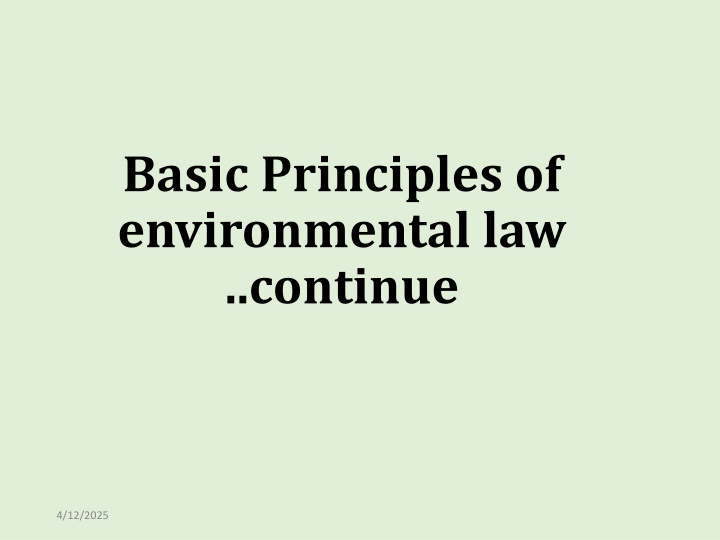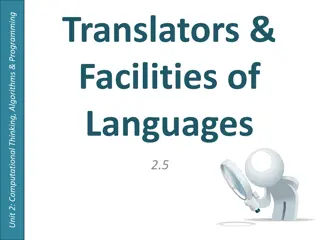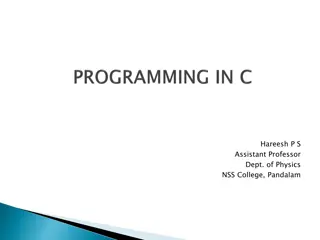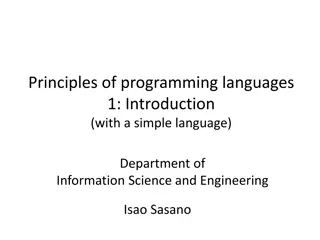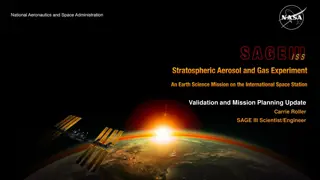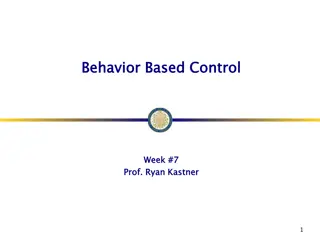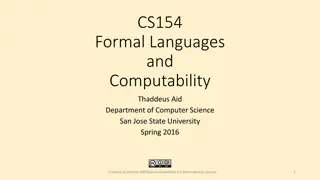Machine-Level Programming III: Control in CS154 Lecture
Consider code snippets and concepts discussed in CMSC 15400 related to control flow in assembly language, condition codes, implicit and explicit setting, and developing a mental model of program execution. Learn about CPU, registers, object code, data operations, and condition flags.
Download Presentation

Please find below an Image/Link to download the presentation.
The content on the website is provided AS IS for your information and personal use only. It may not be sold, licensed, or shared on other websites without obtaining consent from the author.If you encounter any issues during the download, it is possible that the publisher has removed the file from their server.
You are allowed to download the files provided on this website for personal or commercial use, subject to the condition that they are used lawfully. All files are the property of their respective owners.
The content on the website is provided AS IS for your information and personal use only. It may not be sold, licensed, or shared on other websites without obtaining consent from the author.
E N D
Presentation Transcript
Basic Principles of environmental law ..continue 4/12/2025
4. Environmental Justice and public trust In general, environmental justice seeks to ensure that authorities fairly allocate and regulate scarce resources to ensure that the benefits of environmental resources, the costs associated with protecting them, and any degradation that occurs (i.e. all the benefits and burdens) are equitably shared by all members of society. 4/12/2025
4. Environmental Justice and public trust The concept of public trust expresses the idea that the present generation holds the natural resources of the earth in trust for future generations. When applicable as a legal principle, public trust contemplates that certain things, such as natural resources and the exercise of public power, are held by governments in trust for the citizenry and must be used for the public benefit 4/12/2025
5. The Integration Principle Environmental protection requires integration of environmental, economic, cultural, and social considerations into a decision making process in a manner that promotes care for the environment to achieve a sustainability of life style and developments 4/12/2025
6. The Public-Participation Principle Generally, government decisions to set environmental standards for specific types of pollution, to permit significant environmentally damaging activities, or to preserve significant resources are made only after the impending decision has been formally and publicly announced and the public has been given the opportunity to influence the decision through written COMMENTS or HEARINGS. 4/12/2025
6. The Public-Participation Principle In many countries citizens may challenge government decisions affecting the environment in court or before administrative bodies. These citizen lawsuits have become an important component of environmental decision making at both the national and the international level. 4/12/2025
7. The Obligation of States Not to Cause Damage to the Environment beyond Their Jurisdiction Expressions of this principle are found in binding international instruments. An example is the 1982 UN Convention on the Law of the Sea: States shall take all measures necessary to ensure that activities under their jurisdiction or control are so conducted as not to cause damage by pollution to other States and their environment, and that pollution arising from incidents or activities under their jurisdiction or control does not spread beyond the areas where they exercise sovereign rights in accordance with this Convention. 4/12/2025
7. The Obligation of States Not to Cause Damage to the Environment beyond Their Jurisdiction The general substantive obligation inherent in this principle is a duty to prevent, reduce and control trans-frontier environmental harm. However, this obligation is neither absolute nor very precise. Significance harm or serious consequence Due diligence: responsible with due regard to the interests of other States. 4/12/2025
8. Shared Natural Resources, Common Property and Common Heritage of Man Kind Another group of problems are linked to the management of resources which are either shared between several states, or common in the sense that they are outside the area of national jurisdiction. 4/12/2025
A. Shared Natural Resources The concept of Shared Natural resources is used when one natural resource comes under the jurisdiction of several states. A Lake bordered by two or more states, or a River running through the territory of several states are typical examples. equitable utilization balancing the various interests of the states concerned. 4/12/2025
B. Common Property Common property refers mainly to the living resources outside national jurisdiction, such as fish stocks and other living resources on the high seas. These resources are in principle free for the legitimate and reasonable use by all states. 4/12/2025
C. Common Heritage of Mankind The concept refers to two specific nonliving resources outside national jurisdiction: the sea-bed mineral resources and the Moon. In principle, all states should share the benefits of these resources, even if they don t take directly part in their exploitation. 4/12/2025
C. Common Heritage of Mankind The Law of the Sea Convention regulates the utilization of the sea-bed resources outside national jurisdiction. In the Convention this is called the Area . It simply states: The Area and its resources are the common heritage of mankind . An International Sea-Bed Authority shall administer these Resources on behalf of mankind. 4/12/2025
9. The Principle of Sustainable Development sustainable development is development that meets the needs of the present without compromising the ability of future generations to meet their own needs. 4/12/2025
9. The Principle of Sustainable Development Sustainable development is an approach to economic planning that attempts to foster economic growth while preserving the quality of the environment for future generations. development will only be sustainable if it benefits the disadvantaged, without disadvantaging the needs of the future. 4/12/2025
Questions?? 4/12/2025
